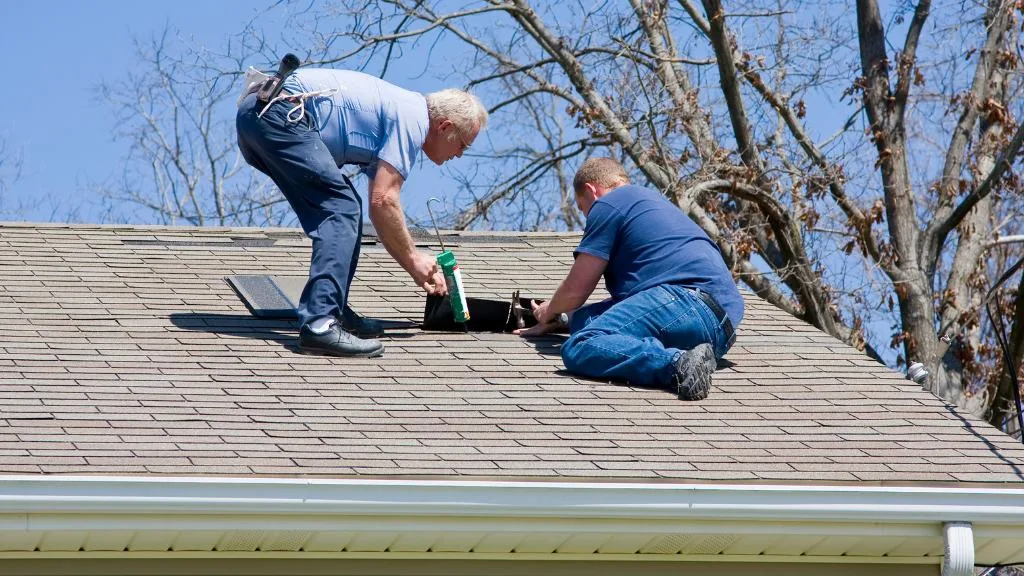
If you’re in the market for a roofing contractor, you may have come across the term “bonded roofing contractor.” But what does that actually mean? A bonded roofing contractor is a professional who has secured a surety bond from a bonding company.
This bond serves as a guarantee that the contractor will fulfill their contractual obligations and meet all state and local requirements. In this article, we’ll take a closer look at bonded roofing contractors, including how they differ from other types of contractors and the benefits of working with one.
Whether you’re a homeowner seeking a reliable roofing contractor or a contractor looking to understand the importance of bonding, this guide will provide you with all the information you need.
So, let’s explore the world of bonded roofing contractors and the peace of mind they can offer.
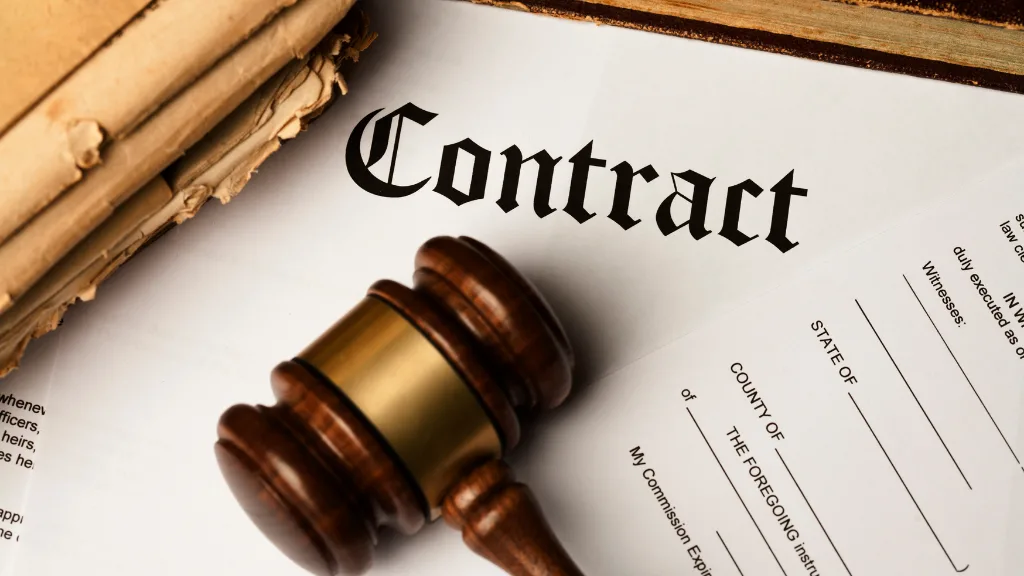
What Is A Bonded Roofing Contractor?
A bonded roofing contractor is a professional roofer who has obtained a surety bond as part of their licensing requirements. This bond serves as a financial guarantee that the contractor will fulfill their legal and contractual obligations, providing a level of protection for you, the customer, in case anything goes wrong during the roofing project.
When you hire a bonded roofing contractor, it means they have met certain criteria and requirements set by the licensing authority. These requirements may include passing an exam, undergoing a background check, and providing proof of adequate insurance coverage to protect your property.
In most states, a bonded roofing contractor must also post a surety bond. This bond is an agreement between the roofing contractor, the licensing authority, and a surety company.
A surety bond promotes ethical practices and ensures contract completion by the roofer. It acts as a form of business insurance that will compensate you, the customer, if the contractor fails to complete a job.
Insurance coverage for a bonded roofing contractor typically includes:
- General liability insurance: Protects against claims of property damage and bodily injury resulting from the contractor’s work.
- Workers’ compensation insurance: Covers medical expenses and lost wages for employees injured on the job, protecting you from potential legal liability.
- Surety bonds: Offers a financial guarantee that the contractor will fulfill their obligations, providing a level of protection for you, the customer.
When choosing a roofing contractor for your project, it’s important to ensure they are licensed, bonded, and insured. This not only offers you financial protection but also ensures that the contractor has met certain standards of professionalism, expertise, and accountability.
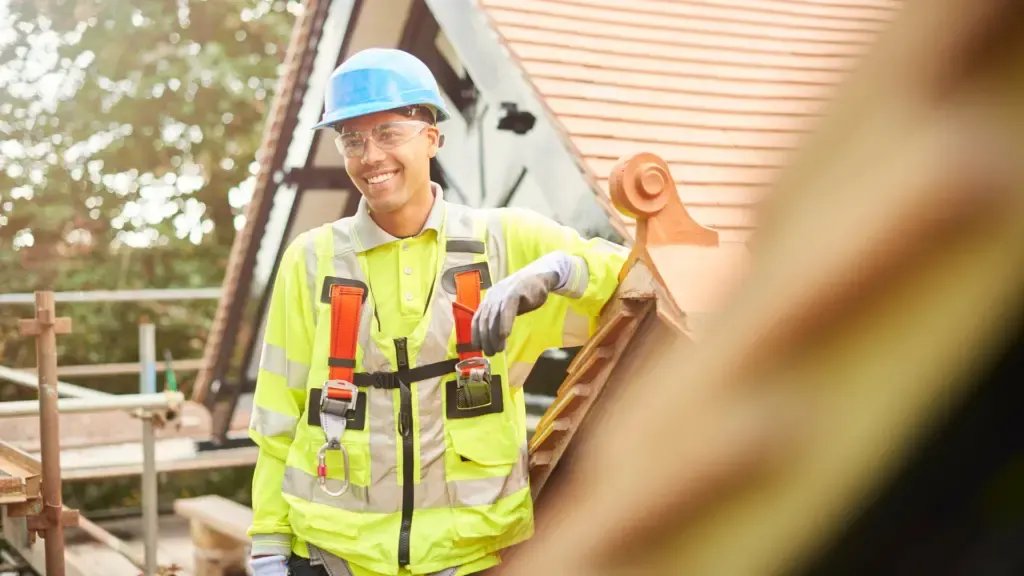
Types Of Bonds And Insurance
When you’re a bonded roofing contractor, it’s essential to understand the various types of bonds and insurance policies that can help protect you, your business, and your clients.
In this section, we’ll discuss three key protections: Surety Bonds, General Liability Insurance, and Worker’s Compensation.
Surety Bonds
A surety bond is a contract between your roofing business, a licensing authority, and a surety company. This bond ensures that you will adhere to the licensing requirements, building codes, and ethical practices.
It also protects your clients in case you fail to complete a project or if there are any defects in your work. Some states require roofing contractors to post a surety bond to obtain a license, so it’s essential to check your state’s requirements.
General Liability Insurance
Having general liability insurance is crucial for any roofing contractor. This type of insurance policy covers you in case of property damage or bodily injury sustained by third parties while you’re performing your work.
For example, if a heavy branch accidentally lands on a client’s roof, the general liability insurance can cover the cost of repairs. It’s essential to review your policy to ensure adequate coverage for your roofing business.
Worker’s Compensation
As a roofing contractor, worker’s compensation is another vital insurance policy that you should have. This policy provides coverage for employees who may suffer injuries or illnesses on the job.
It can cover medical expenses, lost wages, and rehabilitation costs, ensuring that your workers receive the care they need in case of an accident.
Remember, having the proper bonds and insurance policies in place is essential for a successful, reputable, and bonded roofing contractor business. Be sure to investigate your state’s specific requirements and consult with an insurance professional to secure adequate coverage for your business.

Protection And Peace Of Mind
Choosing a bonded roofing contractor provides you with protection and peace of mind throughout the entire process of repairing, maintaining, or replacing your roof.
By being bonded, the contractor guarantees that they will complete the job as agreed upon in the contract. If they fail to do so, you are protected through the surety bond.
This means that you don’t have to worry about whether or not the contractor will finish the roofing job they’ve been paid to complete. If they go out of business, go bankrupt, or otherwise fail to finish the job, you can rest assured knowing you have a level of financial protection.
Compensation For Damages
In addition to ensuring that the job gets done, a bonded roofing contractor also provides insurance coverage for potential property damages. If the contractor damages anything on your property while working, you can be compensated for these damages through their surety bond.
This coverage helps minimize your risk and protects your valuable assets.
Legal Compliance
Lastly, bonded roofing contractors are in compliance with local and state regulations. Most states require roofing contractors to post a surety bond in order to obtain a license.
This bond promotes ethical practices and contract completion, holding the contractor accountable for their actions.
In summary, when you hire a bonded roofing contractor, you benefit from:
- Protection against unfinished work
- Compensation for any damages to your property
- Confidence that your contractor is in compliance with local and state regulations
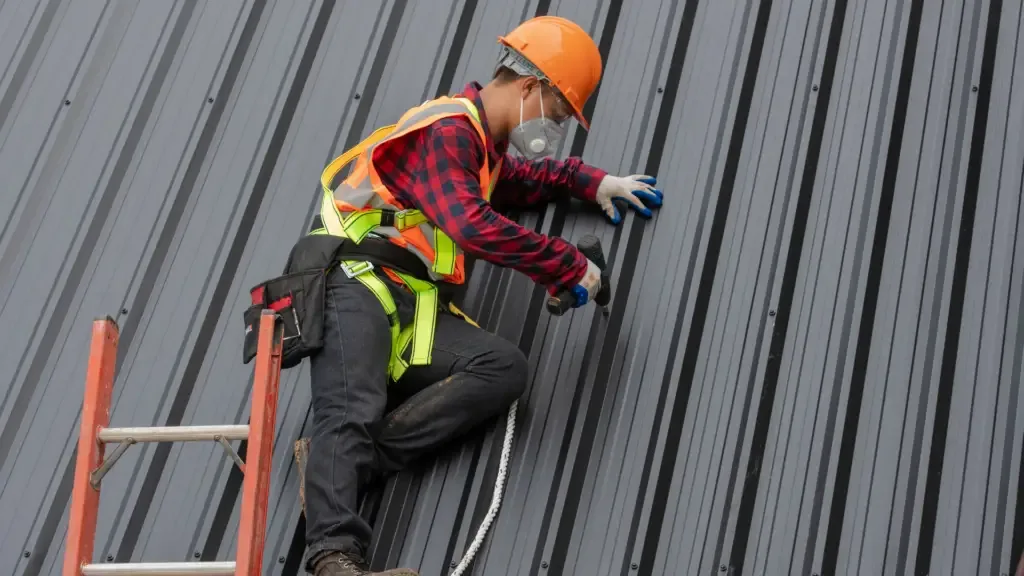
How To Verify A Roofing Contractor’s Credentials
Licenses
To check the license of a roofing contractor, ask for their license number. Visit your state agency’s website that regulates contractors, and search for the contractor’s license by name or number.
Verify if the license is active and in good standing, and also check for any disciplinary actions or complaints against the contractor.
Insurance and Bonding
When choosing a roofing contractor, ensure they have the appropriate insurance and bonding. Ask for proof of their general liability insurance and workers’ compensation coverage, as well as a bond to protect against potential damages or incomplete work.
You can contact the issuing insurance company to verify the policies and ensure they are up-to-date.
References and Reviews
Gathering references from a roofing contractor can provide insight into their work quality and reliability. Request a list of past clients, and take the time to contact them for their experiences with the contractor.
Additionally, check online review platforms such as Google, Yelp, or Angie’s List to read a broader scope of customer reviews. This research can help you make an informed decision when selecting a bonded roofing contractor for your project.
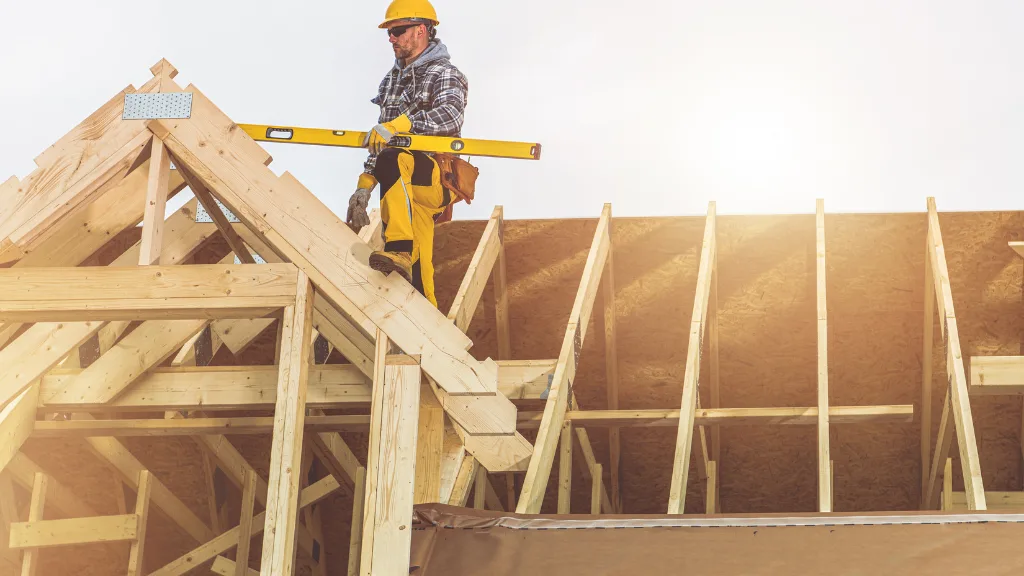
Choosing A Bonded Roofing Contractor
Estimates And Bids
When selecting a bonded roofing contractor, it’s essential to request estimates and bids from multiple companies. This will give you a better understanding of the costs involved and help you compare different contractors on a level playing field.
Make sure the estimates are detailed, with a breakdown of materials and labor costs. This will allow you to make an informed decision when choosing the best bonded contractor for your roofing project.
Experience And Reputation
The experience and reputation of a roofing contractor play a crucial role in ensuring the success of your project. Look for companies with a solid track record and positive customer reviews.
You can also ask for references from previous clients to get a clear idea of the contractor’s work quality and professionalism. Keep in mind that a bonded contractor is more reliable as they are obliged to meet ethical practices and contract completion.
Services And Materials Offered
When choosing a bonded roofing contractor, it’s important to consider the services and materials they offer. A good contractor should be able to provide a wide range of roofing materials and options to suit your needs and preferences.
Additionally, they should offer complementary services, such as gutter installation and maintenance, to provide a comprehensive solution for your roofing needs.
To help you evaluate different contractors, consider the following factors:
- Variety of roofing materials offered
- Warranties on materials and workmanship
- Specialization in specific types of roofs or materials (if applicable)
By keeping these factors in mind, you’ll be better equipped to choose a bonded roofing contractor that offers the right blend of experience, reputation, and services to meet your roofing needs.

Pros And Cons Of Bonded Roofing Contractors
As you look for a roofing contractor, it’s important to know the pros and cons of hiring a bonded professional. Here, we’ll discuss some of the factors you need to weigh when making your decision.
Pros
Financial Protection: A bonded roofing contractor provides you with financial security, as they are backed by a surety bond. This means if the contractor defaults on their work, the surety company is liable, protecting you from financial loss.
Legal Compliance: In many states, roofing contractors need to be bonded to obtain a license. Hiring a bonded contractor ensures they have met the state’s licensing requirements and adhere to legal standards.
Quality Assurance: Bonded contractors typically strive to maintain a strong reputation in the industry, as it affects their bond premiums. This means you’re more likely to receive high-quality work for your project.
Risk Mitigation: Bonds can cover damages caused by workers or failure to obtain necessary permits. This additional layer of protection covers you as a homeowner.
Cons
Higher Costs: Bonded contractors may charge more for their services, as they need to pay bond premiums. These costs may be passed on to you in the form of higher project fees.
Limited Availability: Some contractors may choose not to become bonded, which can limit your options for hiring a professional. If you require a bonded contractor, you may have a smaller pool of candidates to select from.
Potential for Fraud: Like any industry, there can be instances of fraud or false claims. Ensure that the contractor is truly bonded before hiring them by verifying their bond with the surety company.
Factors to Consider
- Cost: Compare the fees charged by bonded and non-bonded contractors to determine if the added protection is worth the extra expense.
- Fraud: Verify the contractor’s bond status with the surety company before moving forward with the project.
- Risks: Consider the specific risks associated with your project and how a bond may mitigate those risks.
In summary, hiring a bonded roofing contractor has its pros and cons. It’s crucial to consider factors like cost, fraud, and project risks as you make your decision. Ultimately, you must decide what level of protection and assurance is best suited for your needs.

